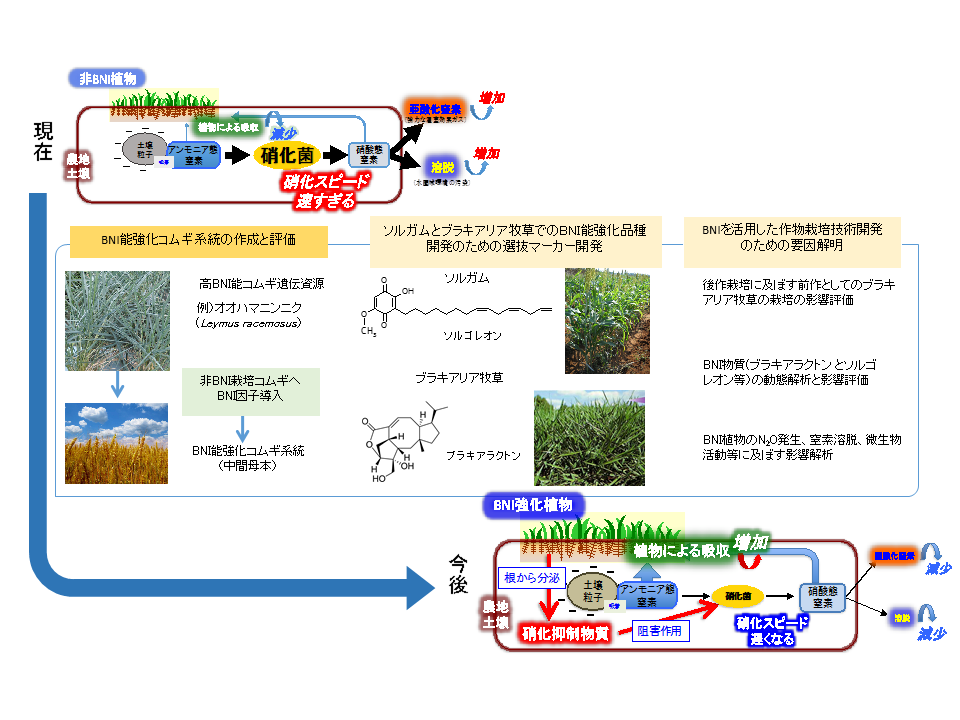“BNI utilization” Development of ecologically sustainable agricultural systems through practical use of the biological nitrification inhibition (BNI) function
2025-08-05
“BNI utilization” Development of ecologically sustainable agricultural systems through practical use of the biological nitrification inhibition (BNI) function
BNI is an active plant-mediated natural function where nitrification inhibitors released from plant root systems suppress soil-nitrifying activity. Nitrification, the process in which limited group of nitrifying microbes (nitrifier) oxidize ammonia to nitrate, is crucial to how nitrogen cycles through global environment systems and affects crop production. Modern crop production systems depend heavily on fertilizer-nitrogen inputs to drive agricultural productivity, resulting in very high nitrification rates. This causes the constant decline of nitrogen-use efficiency (NUE) and various big problems to the earth’s environment. Nitrification converts the immobile form of fertilizer-N, i.e., NH4+, in the soil to highly mobile nitrate (NO3-), resulting in the pollution of the aquatic environment. In addition, some are released into the atmosphere as nitrogen monoxide (N2O), a powerful greenhouse gas, by denitrification and also in the course of nitrification. Suppressing nitrifier-activity to control nitrification in agricultural soils by the BNI technology is thus central to improve NUE and reduce N-leakage to the environment. This leads to the reduction of fertilizer inputs as a result. JIRCAS develops genetic tools, genetic stocks and agronomic strategies for exploiting BNI function using three model systems - wheat, sorghum and Brachiaria grasses (Fig. 7). For cultivated wheat, introducing high-BNI capacity largely depends on transferring BNI trait (i.e., high-BNI capacity), located in one of its wild relatives (Leymus racemosus) using chromosome-engineering tools. The International Maize and Wheat Improvement Center (CIMMYT) participates as the strategic research partner in this activity. For sorghum, genetic improvement of BNI capacity is through acceleration of sorgoleone release from root systems. With the participation of the International Crops Research Institute for the Semi-Arid Tropics (ICRISAT), JIRCAS is developing genetic markers for sorgoleone trait to facilitate marker-assisted selection to improve BNI capacity in sorghum. JIRCAS is also closely working with the International Center for Tropical Agriculture (CIAT) to exploit the high-BNI capacity of Brachiaria pastures for the benefit of non-BNI crops such as maize, soybean, and upland rice using agro-pastoral systems, which is undergoing operational testing at present. In addition, JIRCAS clarifies the factors involved in the development of crop cultivation techniques with effective use of BNI function. Through this multi-partnered consortium effort, JIRCAS is developing several BNI-research components to build low-nitrifying production systems as a long-term goal for agricultural sustainability.

